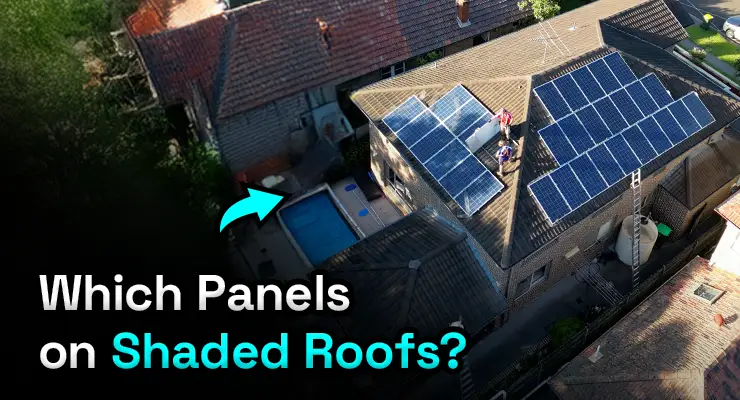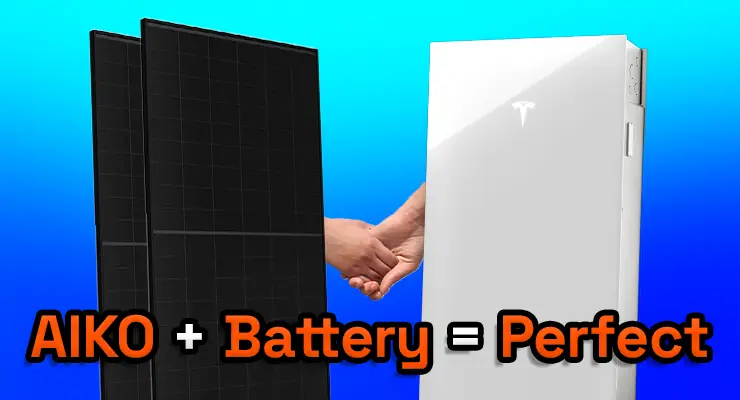Fast read
Solar panels generate power, not heat, by absorbing light. Therefore, the sun's potential for decreased intensity and shorter daylight hours throughout the winter may impact your solar system's output.
Depending on where you are located, the output decline can be different. The panel's brand, the system's size, and the panels' angle are some examples of variables that can affect these statistics.
Theoretically, the tilt of the panels should be increased in winter to line up with the sun's lower arc in winter to maximise production, and the panels' placement could be changed to prevent shade. Unfortunately, in practical terms, this rarely occurs, as solar panels usually get fastened in a fixed position.
Will my panels work during winter?
Many homeowners believe in the misconception that their solar system draws electricity from heat. They become concerned because they think their solar panel system’s output will decrease in winter. This understanding is not correct.
Solar panels absorb light to produce electricity, not heat. Yes, the temperature does fall, but the sun’s light does not disappear. However, the sun is lower in the sky and a further distance away in winter, meaning the rays do not hit solar panels at an optimal angle and with the same intensity.
Daylight hours are also less in winter, meaning less sunlight per day. So what does this mean for the output of your solar panels in Winter?
What output should you be expecting?
Your solar panels will produce less electricity in winter than in summer. In Australia and NZ, the drop in output varies in each city. In winter, solar system output drops to 64% of its average daily production in Sydney.
Brisbane has the best conditions in winter, only dropping to 73%. Melbourne has one of the bigger drops, where solar output reduces to 50% of winter’s average annual daily output. However, Adelaide is not much better, falling to 52% of the yearly average production.
These include the PV panels’ brand and low-light performance, the system size, the panels’ angle, and many more. Use these numbers as a general guide, so if your energy produced is reduced in proximity to the mentioned percentage, you know your PV system performs as expected. However, if you drastically drop further than these numbers, you should contact your installer for advice and maybe a site inspection.

The best angle for your solar panels in winter
The standard recommendation for the angles your panels sit at is the latitude angle of your home. While this angle will still be beneficial, the sun has a low arc throughout winter. This means to get the absolute most out of your panels, you would have a slight increase in the tilt of the panels. This will ensure your panels are still perpendicular to the sun, even with the lower arc.
It may be a hassle for you to adjust the tilt of your panels. So, if you struggle to receive enough electricity throughout winter, you can plan to set your solar panels with an increased angle from the initial installation. Of course, you will have less output potential in summer, but if it is an issue that your output drastically crops in winter, this may be worth it.
Then again, if you do not install on a flat roof, where tilt angles are an option, and install the panels onto an angled roof directly – the whole question is academic, as in 99% of installs, the installer will follow the angle of the roof.
Shading in winter
During the winter season, the sun’s trajectory follows a lower arc across the sky, resulting in increased shading on solar panels compared to other times of the year. This shading effect can lead to a reduction in energy output. Considering this potential challenge during the initial installation phase is crucial. If existing shading conditions are exacerbated during winter, adjustments to panel positioning or the pruning of obstructive branches, particularly from trees, may be necessary.
It’s important to clarify a common misconception: while it is true that the overall energy generated from solar panels is lower during winter compared to the sunnier summer months, they remain effective. Contrary to the belief that solar panels yield no output in winter, systems larger than 6 to 8 kW still generate sufficient electricity to fulfil the energy needs of a typical home. This underscores the resilience and functionality of solar panels throughout the year.
In essence, despite the challenges posed by winter shading, solar panels continue to contribute to the energy needs of a household, offering a reliable and sustainable power source. Understanding these seasonal variations allows homeowners to optimise their solar energy systems, ensuring consistent performance even in colder months.
So do Solar Panels work well in Winter?
In a nutshell, yes, solar panels still work during winter, but they might not be as effective. Some folks think solar systems need heat, but they actually use light to make electricity. Winter brings challenges like lower sun angles, more distance from the sun, and shorter daylight hours, which all lead to less energy output.
On average, solar systems in winter produce around 64% in Sydney, 73% in Brisbane, 50% in Melbourne, and 52% in Adelaide compared to the rest of the year. Adjusting the angle of your panels a bit can help, but it might mean they’re not as effective in summer.
Shadows caused by the lower sun arc in winter can also affect energy production. Thinking about this during installation and making small changes, like moving panels or trimming branches, can help deal with shading.
Even with these challenges, remember, solar panels still do their job in winter, keeping your home powered. If you notice a significant decrease in output, it’s a good idea to talk to your installer for advice. Understanding these seasonal changes helps you get the most out of your solar system, making it a reliable power source all year long.



